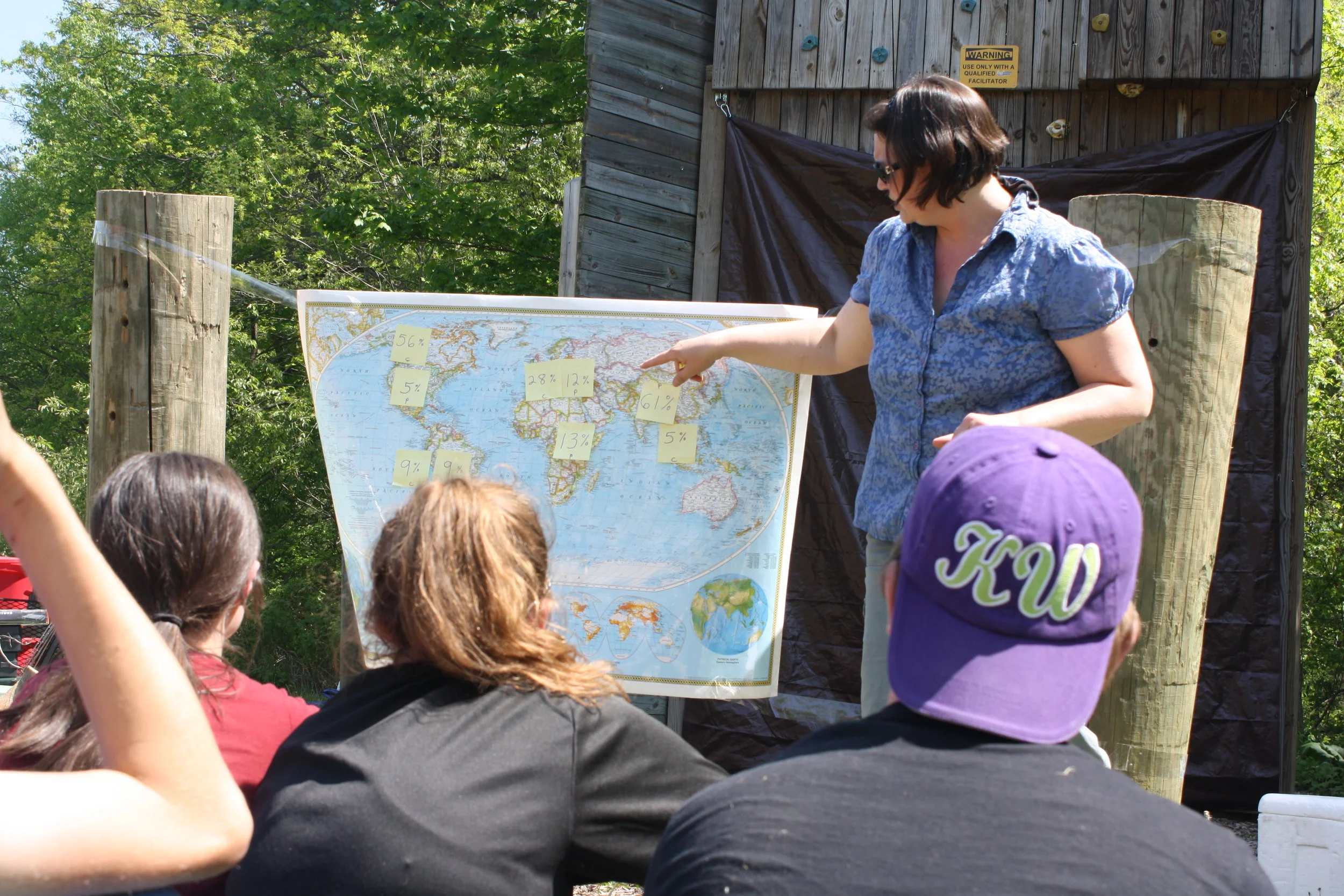At Kensington Woods, we hold high expectations for all students in their character, behavior and, most importantly, their academics. By holding students to high academic expectations, we believe, and research supports, that they will rise to those expectations and excel. We help students meet our high expectations through a variety of ways.
Mastery Learning
We expect all students to master the content. Therefore, there are no "D's" at Kensington Woods. The minimum passing grade is a 70%. But we hold a mastery learning philosophy that allows students to develop their skills and knowledge until they can demonstrate mastery of the content. That might be retaking a test, revising a project or other ways to demonstrate their knowledge, depending on the course and teacher.
Mastery learning not only prevents failure but it builds motivation and confidence. Students who struggle with difficult work but then are able to successfully complete it get the sense of satisfaction and competence that is essential in developing adults who persist and are willing to tackle challenging problems.
Growth Mind Set
We practice a “Growth Mind Set” philosophy where students are instructed in the extraordinary ability of each human brain to grow and change throughout a lifetime. At Kensington Woods there is no such thing as “I’m not good at math,” or “I’ve never done well in English.” Rather, we guide students in locating their strengths, building on what they do well, and applying those strategies to new tasks. They are amazed at what they can do! By maintaining the same standard of learning for all, we believe that every student who enters our building can truly be whoever they want to be.
Whatever it Takes Attitude
At Kensington Woods, we hold a "Whatever it Takes" attitude. Teachers will do whatever it takes to help a student find success, and we expect students and parents to do so as well. Teachers, students and parents work as a team to help students achieve.
Academic Center
All students are enrolled in an Academic Center period that meets 4x a week. During this period, students work on time management skills, make sure their planner is filled out, set and track goals and work with peers on group projects. In addition, students also have time to work on homework.
College Acceptance
We hold the expectation that all Seniors will be accepted into a university or college before graduating. We support them in achieving this goal through rigorous and relevant academics as well as providing support and resources to apply to college through our our Advisory and college counseling programs.
Standardized Tests
Through our high expectations we expect to, and do see, academic success for students through improved performance in the classroom as well as on standardized tests like the SAT and M-STEP. We support strong performances on these tests not through teaching to the test, but by teaching academic content and academic skills in engaging and rigorous ways that helps students truly learn the content and skills needed for success on these tests but also for success in college and beyond.
We also support students' strong and improved performance on the SAT through an SAT preparation program unique to Kensington Woods, designed for each student's needs.
At Kensington Woods, we have a proven record continual success at students improving their standardized test scores over time, especially for those who attend our school for 3+ years.
Teacher and Peer Tutoring
Kensington Woods embeds peer tutoring opportunities for students throughout the curriculum. All teachers stay after school at least one day per week to support students in Office Hours. In addition, peer tutoring is often embedded within classes. Peer tutoring not only helps students who are struggling, but helps those students who are tutoring. Those students have an opportunity to “teach,” which is widely regarded as the most effective way of learning.
Character Education
Character Education is integrated throughout our school in a variety of ways. Kensington Woods offers a supportive, non-coercive environment that encourages students to take responsibility for their actions as well as understand that they have choices for their behavior. Character traits such as; getting along, kindness, optimism, work ethic, responsibility and respect are highlighted throughout the curriculum and students are encouraged to demonstrate these traits outside of the classroom.
The importance of strong relationships is emphasized throughout Kensington Woods as well as an emphasis on the motivation and the development of the whole student (academic as well as social, emotional and civic responsibility) in order to create the foundation of being a successful member of society.



